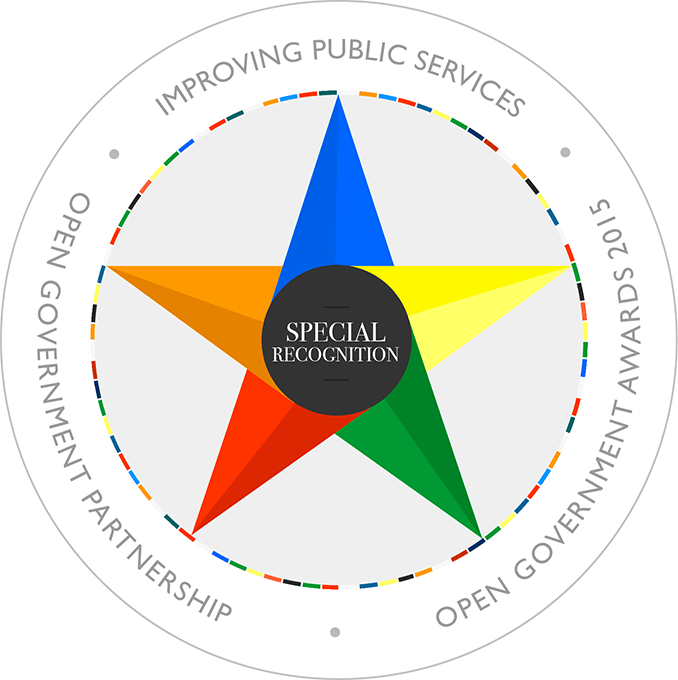2015 Results
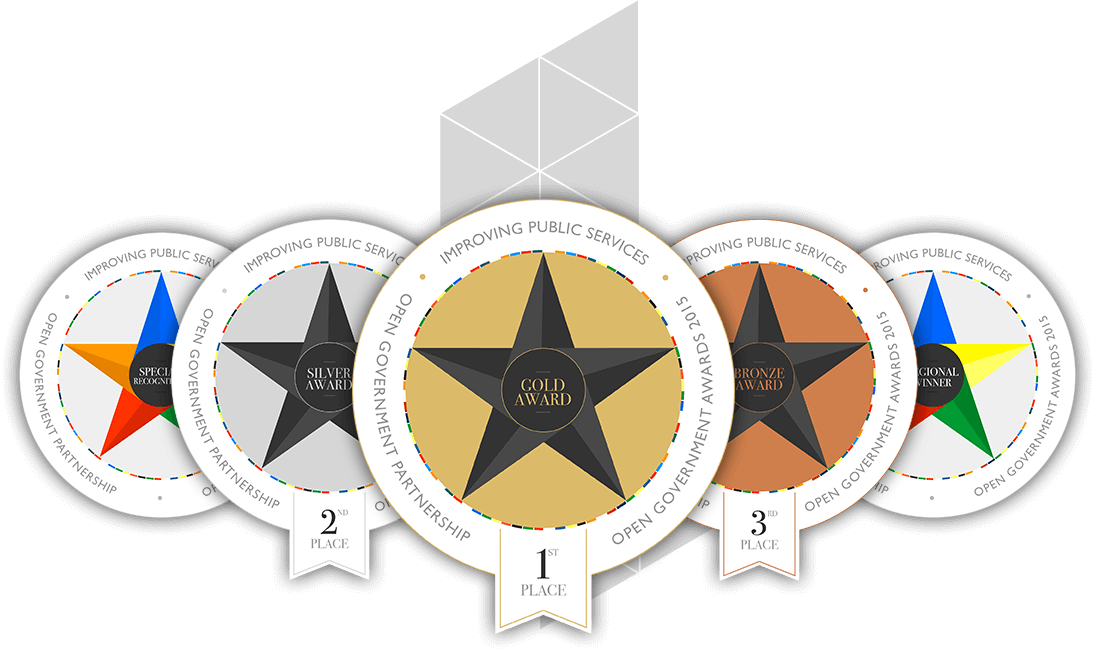
In 2014 OGP hosted its first annual Open Government Awards ceremony at the United
Nations, in the presence of 10 World Leaders and hundreds of civil society leaders
from around the world. The theme of the Awards – Citizen Engagement – asked how
are governments involving citizens in designing and implementing public policy or
public services, how has the process benefited both government and citizens, and
is it a sustainable program?
Thirty-three countries applied – almost all of them joint applications between governments
and civil society organizations. An international group of 22 judges from 20 countries,
representing governments, civil society, multilaterals and the private sector scored
each application. The top 10 initiatives - all rich in content but extremely diverse
in terms of their approach - were honored at the OGP High-Level event at the United
Nations.
Below is a snapshot of the winning initiatives and a brief summary of what they
had achieved.
Theme
In 2015, OGP asked countries to showcase how open government initiatives resulted in concrete improvements in the delivery of public services, e.g. economic welfare programs, health care, education, water, roads, public safety etc. OGP selected this theme in recognition of the fact that public services are the most common interface between citizens and the government, and that governments should ensure transparency, accountability and responsiveness in their design and delivery. Good quality and effective public services respond to the needs of people, including vulnerable groups, and form the foundation of inclusive development. OGP also believes that this theme is a key component of achieving the post-2015 Sustainable Development Goals.
Participation
Each OGP participating country was eligible to submit one application to the 2015 Open Government Awards. This year, OGP received 30 applications. A government agency in each country was responsible for submitting the country’s application. Governments are strongly encouraged to submit a joint application with one or more civil society partners. Given the theme of improving public services, OGP also recognized and encouraged the submission of initiatives that were led by subnational (vs. national) governments. National governments were required to consult with civil society organizations to select the most compelling initiative to be submitted as the country’s entry for the 2015 Awards. Countries were allowed to submit initiatives either within or outside their OGP National Action Plans. This year, three of the seven winning initiatives were commitments from a country’s OGP National Action Plan.
View Top 10 Ranked InitiativesWinners
Judges’ scores were aggregated to produce an absolute rank order of countries in the top 3. These countries are recognized as the overall winners of the competition.
View Top 10 Ranked Initiatives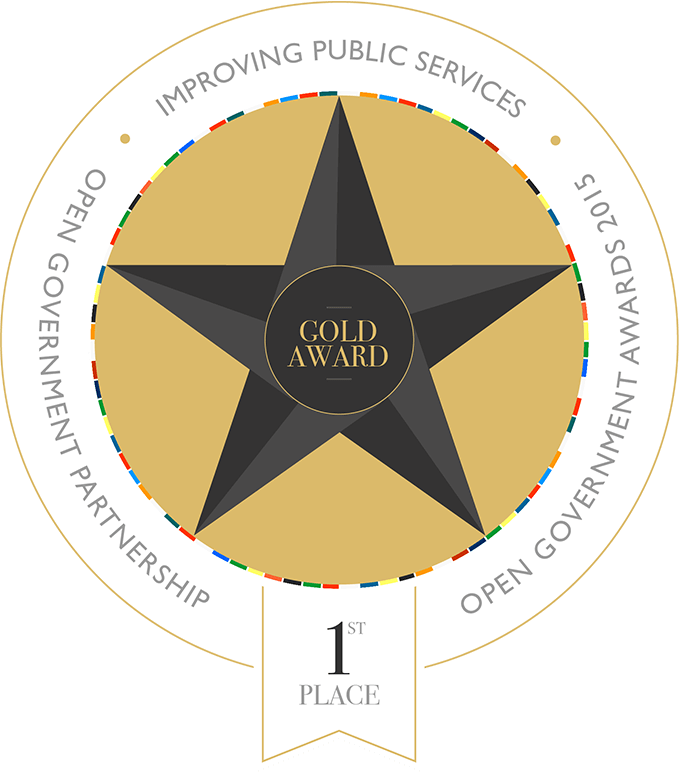
“ATuServicio.uy”
Giving citizens unparalleled access to the performance indicators of health care
providers
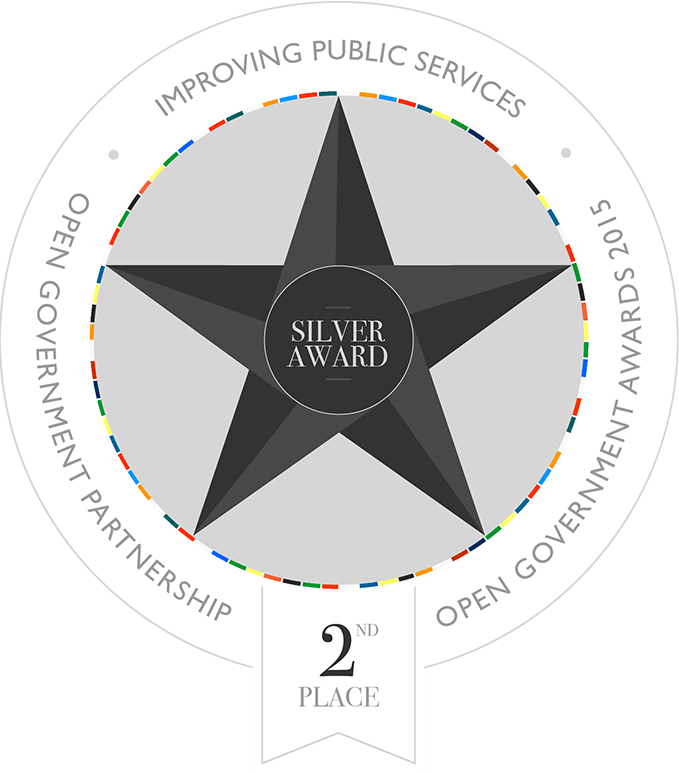
“Pencerah Nusantara (The Guiding Lights of the Archipelago)”
A partnership to address complex health challenges faced by an archipelago
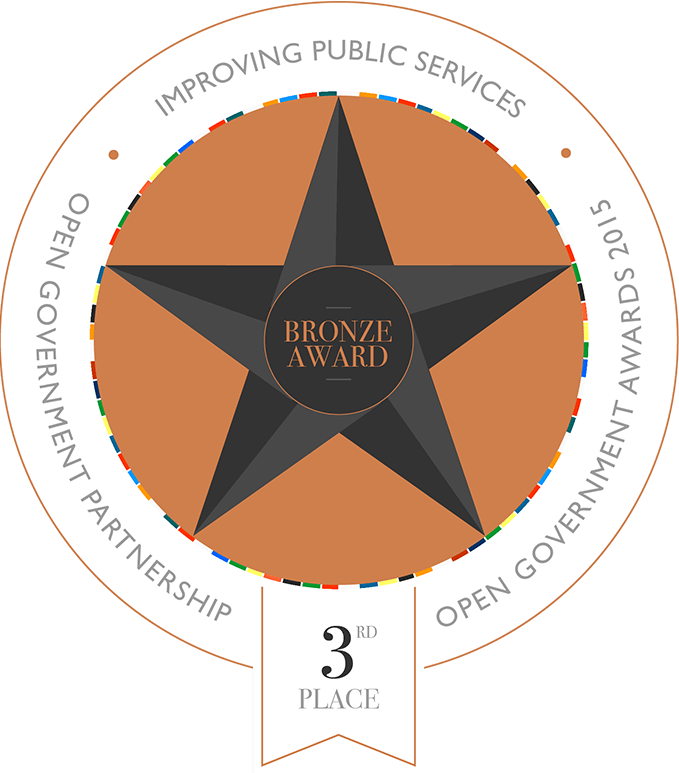
“Neighborhood Planning”
Handing democratic power to citizens to make planning policies and shape their communities
Regional Champions
Four OGP countries are honored as ‘regional champions’ – one from each of OGP’s four regions. In case of overlaps in countries who may be in the top 3 and also the highest scorer in their region, we have chosen the 2nd highest scorer for the regional champion. The countries overall rank and score are also provided.
View Top 10 Ranked Initiatives


Armenia
“Smart Municipality”
Connecting the needs of the citizenry to the institutional development of local
government
Special Recognition
In the trait-scoring rubric that is used by judges, one of the traits asked whether the application was able to make a compelling case as to how the initiative benefitted vulnerable populations. This year, Indonesia was doubly recognized in this category.

